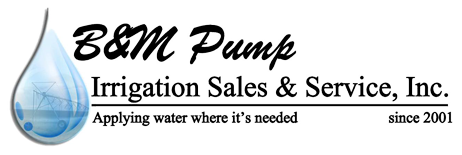How Are Agricultural Lubricants Developed?
Your commercial or industrial irrigation systems probably go through many lubricants as they run. But did you ever stop and think about why these lubricants are essential and where they come from before you buy them? The answers are surprisingly interesting and are well worth exploring. In this fun article, we’ll take a light look at where these lubricants originate and how these processes help your irrigation systems.
Why Does Irrigation Systems Need Lubricants?
Irrigation systems go through many lubricants to keep their parts operating smoothly while providing your farm or landscape with water. Lubrication helps to cut back on wear and tear problems and helps your systems remain operational. After all, you don’t need us to tell you that irrigation systems are expensive! Keeping them lasting as long as possible can save you a ton of money.
Just as significantly, lubricants can help protect against rust and other problems caused by heavy usage, extreme temperature changes, and harsh weather. Did you know that your lubricants are working hard to protect your irrigation systems whenever it rains and snows? It might be just about the only thing working on your farm during these awful conditions.
Oh, one last fact: Lubricants help increase your energy efficiency. That’s because they improve your irrigation system operation and keep them pumping water smoothly and effectively. That’s why you spend so much money keeping your irrigation system lubricated: to save yourself money! But just how are these lubricants made? Let’s take a deep dive to find out.
How and Where Do Agricultural Lubricants Developed Get Produced?
Petroleum lubricants are manufactured from base oils derived when lubricant companies boil small fractions or crude oil. Without getting into the complex or confusing science behind it, this process helps carefully remove undesirably heavy fractions in the oil to prevent gumming. In addition, lubricant companies carefully refine these oils to remove paraffin, alkanes, and other unwanted elements. This process helps make many lubricant types, including:
- Engine oils that help keep your lubrication motors running smoothly
- Gear and transmission oils that minimize wear and tear problems
- Universal tractor oil you can use on many different moving parts
- Greases you can use on belts, chains, and hinges in your system
They then carefully blend these base oil stocks and various additives, such as corrosion inhibitors, surfactants, and more, that help to keep lubricants operating smoothly and safely. Lubricant designers then test each lubricant to make sure it works smoothly, ensuring it has strong thermal stability, viscosity, foaming characteristics, compressibility, and other things to help your industrial lubricants keep your irrigation equipment running without falling apart.
Learn More About Your Lubricants
As you can see, creating lubricants isn’t necessarily excessively complex. However, it does require the right balance between various industrial processes and a balance between your lubrication needs and lubricant costs. Talk to your lubricant manufacturer about these processes to learn even more. Doing so can give you the insight you need into choosing the best farm lubricants.
Categorised in: Irrigation
